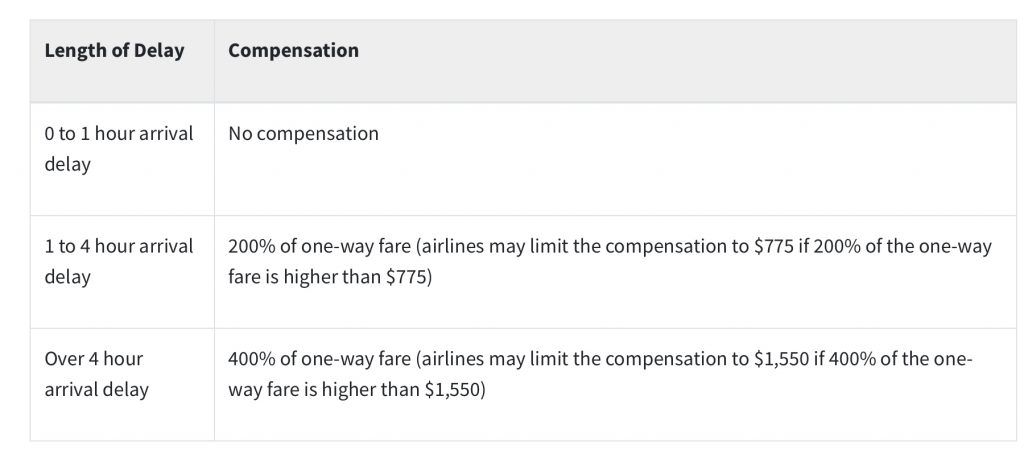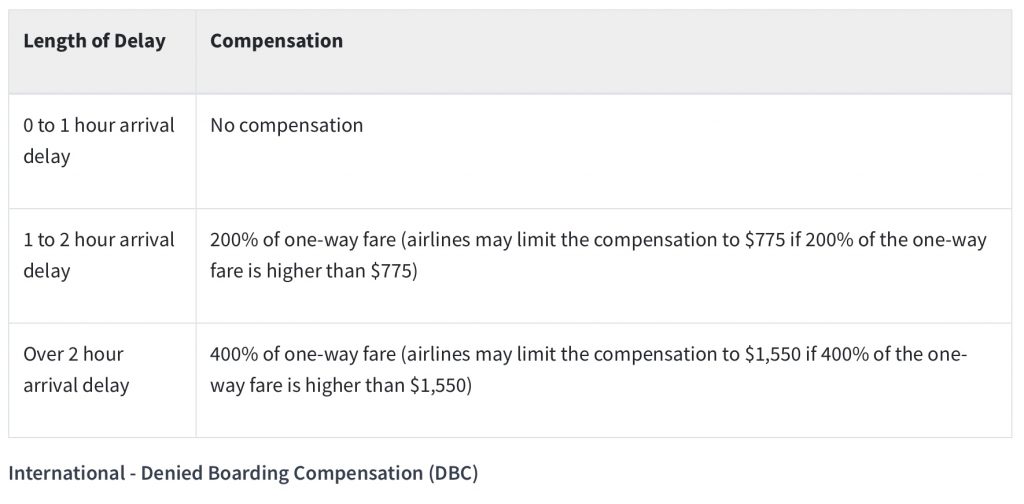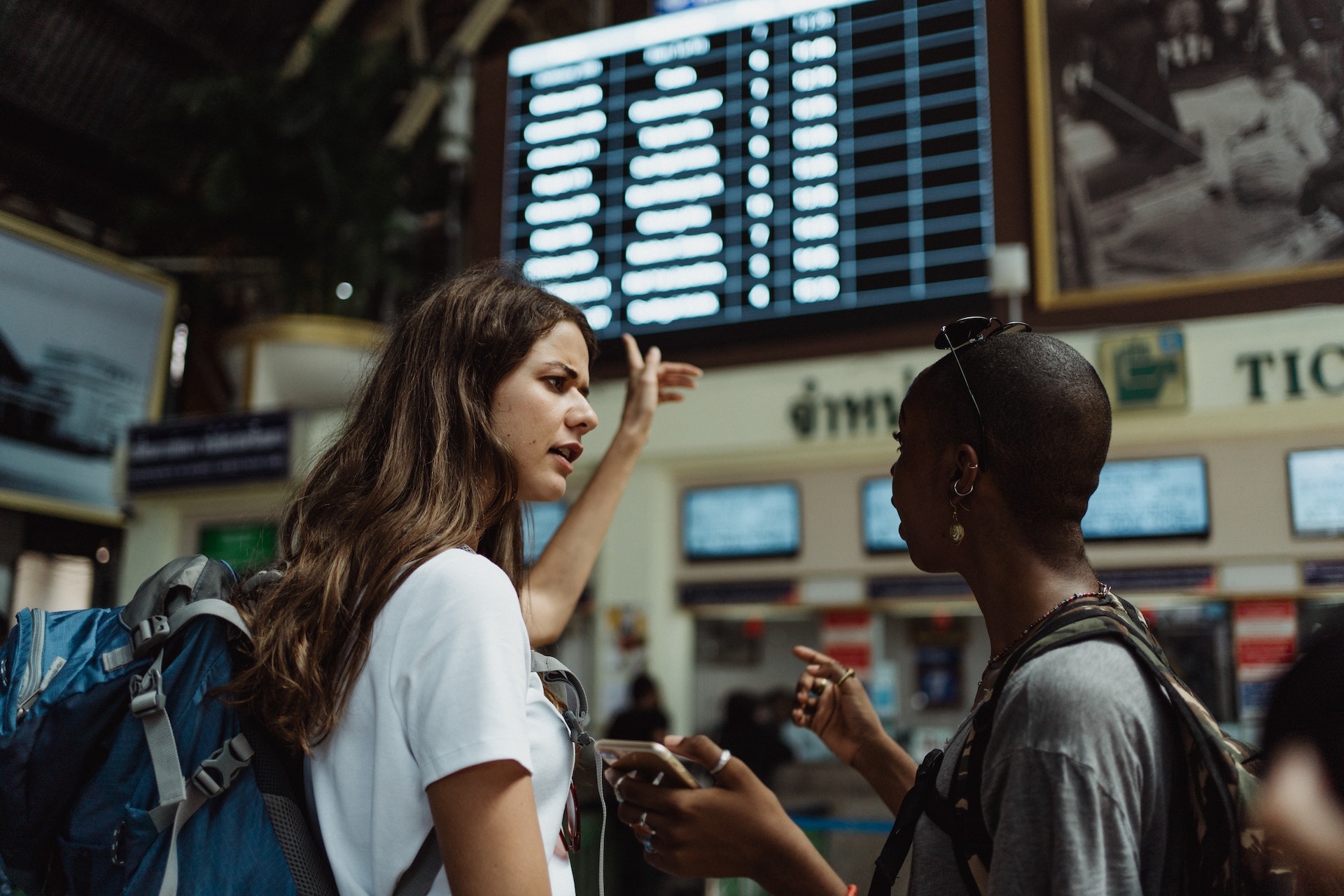Just a little Public Service Announcement, ripped (and abbreviated) from the U.S. Department of Transportation, for all travelers who fly the friendly skies .
Very easy to get frustrated out there – lost luggage, TSA, unruly passengers. So, when you’re confronted with a Bumped flight, don’t panic. Instead, know your rights. Then, proceed with a little civility and understanding.
Handled correctly, you might be well rewarded.
Bumping
According to the U.S. Department of Transportation, Bumping, also known as “denied boarding,” happens when there are more passengers scheduled to fly on an airplane than available seats.
The business practice of bumping is not illegal. Airlines oversell their scheduled flights to a certain extent in order to compensate for “no-shows.”
Not all airlines engage in the practice of selling more tickets than available seats on an aircraft. Some airlines simply sell enough tickets to fill every seat.
Before an airline forces a passenger to give up his/her seat due to overbooking, the airline must ask passengers on the flight if they are willing to give up their seat voluntarily in exchange for compensation.
Voluntarily Giving Up Your Seat
Airlines must first ask passengers to give up their seats voluntarily, in exchange for compensation, before bumping anyone involuntarily. Airlines may offer passengers incentives, such as money or vouchers, to volunteer. There is no limit to the amount of money or vouchers that the airline may offer, and passengers are free to negotiate with the airline.
If you decide to give your seat back to the airline in exchange for compensation and a later flight, you may want to get answers to these important questions:
- When is the next flight on which the airline can confirm your seat? The alternate flight may be just as acceptable to you. On the other hand, if the airline offers to put you on standby on another flight that’s full, you could be stuck at your departure airport for a long time.
- Will the airline provide other amenities such as free meals, a hotel room, transfers between the hotel and the airport, and a phone card? If not, you might have to spend the money it offers you on food or lodging while you wait for the next flight.
- How long is the ticket or voucher good for?
- Is the ticket or voucher unusable during holiday periods when you might want to use it?
- Can it be used for international flights?
Involuntarily Giving Up Your Seat (Bumping)
Sometimes, when an airline asks for volunteers to give up their seats and fly on a different flight, there are not enough volunteers. When this occurs, the airline will select passengers to give up their seats. This is called “involuntary denied boarding” or “bumping.”
How does an airline determine who has to give up their seat?
- It is the airline’s responsibility to determine its own fair boarding priorities.
- An airline may deny you a seat based on criteria that it establishes, such as the passenger’s check-in time, the fare paid by the passenger, or the passenger’s frequent flyer status.
Do airlines have to tell me my rights when I’m involuntarily bumped?
- Yes. DOT requires airlines to give all passengers who are bumped involuntarily a written statement describing their rights and explaining how the carrier decides who gets bumped.
What To Do If Bumped?
Stay Calm. Arguing with the assistant will only make matters worse. Quite possibly, they are not even aware of the regulations and compensation set by the U.S. Department of Transportation.
Go to Transportation.gov, read the information on the page. Scroll down to Domestic – Denied Boarding Compensation (DBC). A screen grab of your compensation is below:


When Do You Get Your Money?
Airlines must offer compensation at the airport on the same day. Again, stay calm, show the assistant the information on the Department of Transportation website and you should be fine – then, enjoy an average Airport meal and a few cocktails while you wait.
If, the Airline isn’t being cooperative, Do Not Lose It or the Airline might use your meltdown against you, making it possible that you do not receive your entitled compensation.
And, you might become a meme (which, depending on the circumstance, could be bad or good).
____________________________________________________________
All information above explained in it’s entirety on Transportation.gov.
Photo by Ketut Subiyanto

